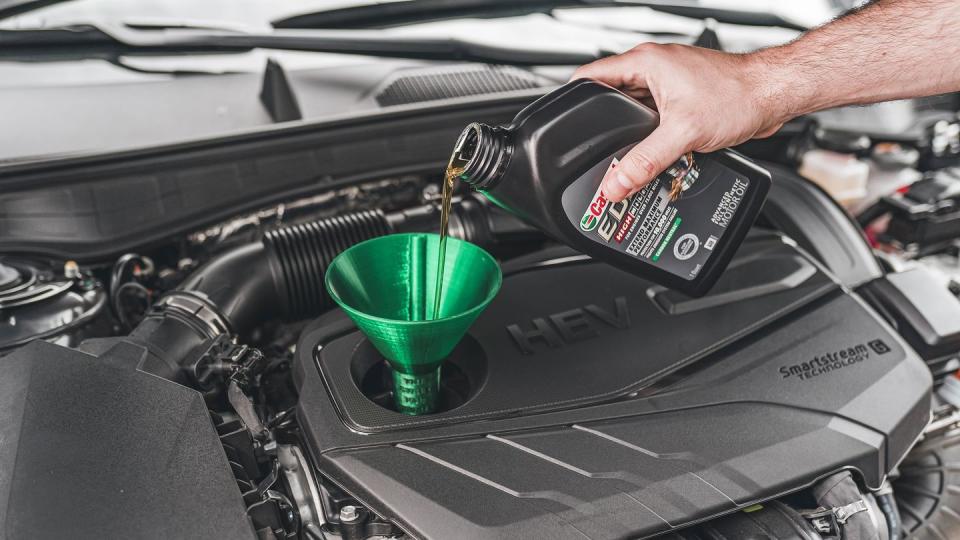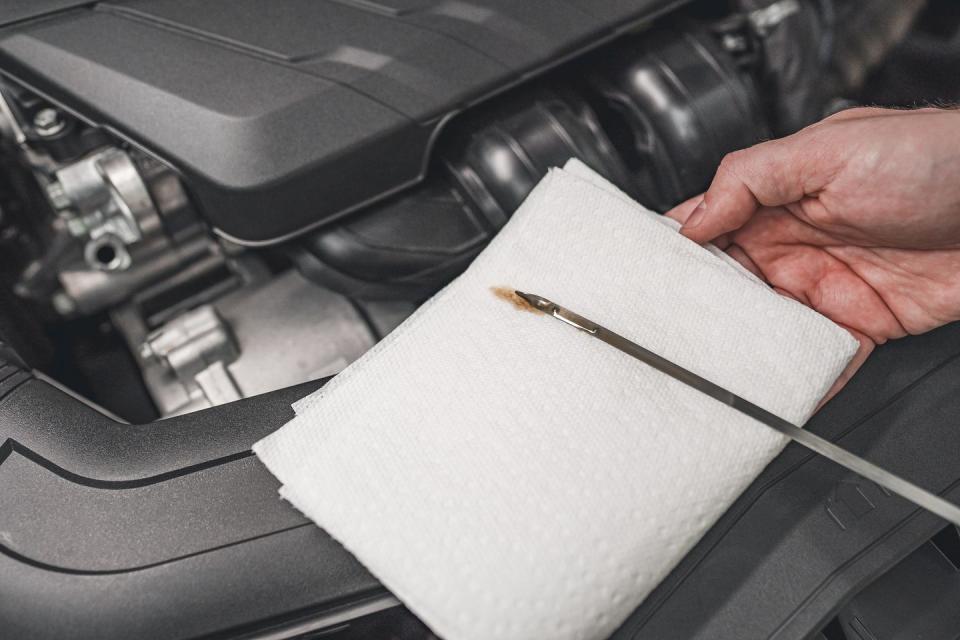How Often Should You Change Synthetic Oil?

The synthetic oil in your car's engine has an incredibly challenging job. In an instant, the cold oil resting in your engine's sump needs to surge its way to the valve gear and then back to the sump immediately at startup.
But that's only the beginning. Because as your engine heats up, the oil within it must continue to protect the moving parts that risk scraping against one another without this lubrication.
When Should You Change Your Synthetic Oil?
Well, that depends, so we'll explain the facts behind the proper interval to change your car's synthetic oil.
The easy answer: at least once every year.
Most modern vehicles have change intervals in the 7500-to-10,000-mile range—generally, a good schedule to use if you don’t know the manufacturer’s recommended mileage. Some manufacturers even push these intervals to 12,000 or 16,000 miles. We recommend you follow the interval listed in the owner’s manual of your vehicle.
What Happens If I Go Past the Recommended Time or Mileage?
Every oil decomposes, absorbs deposits, and loses its protective properties after a period of time—even if your car simply sits in the garage. Synthetic oil, however, degrades more slowly than conventional oil.
Engines also consume some oil during normal operation—some more so than others. It's good practice to check your vehicle's oil level at each fuel stop and to top it off if necessary. If your engine has a real appetite for oil, then failing to keep tabs on the oil level (and topping it off as needed) could result in catastrophic engine failure. Oil protects just about everything inside your engine: bearings, pistons, cylinder walls, and more.
If you want to really get in the weeds, you can send a sample of your vehicle's oil taken during an oil change and send it to Blackstone Labs for analysis. For $35, you'll get back a thorough report about the condition of your oil, including the presence of metals that could indicate excessive engine wear. For an extra $10, you can get a measure of how much life your oil's additives had left, and if you might be able to possibly extend your change intervals.

What If There’s No Recommended Mileage Interval?
Certain cars don’t specify a fixed mileage for oil changes. Instead, an oil-quality monitoring system keeps track of driving conditions, such as the length of your trips, engine operating temperatures, and other parameters. Many newer cars use these algorithms to calculate when your oil should be changed and alert you when it's time. Regardless, it's a good idea to change your oil at least once every 12 months.
Do Severe Driving Conditions Affect How Often I Change My Car's Oil?
Manufacturers have a special set of recommended synthetic oil-change intervals for vehicles driven in severe conditions, including in extreme heat, extreme cold, dusty environments, or if the vehicle is used for towing. Routinely driving your car without getting the engine up to operating temperature also qualifies as severe driving (for instance, if the majority of your driving is a five-minute loop to and from your home and the grocery store down a few blocks away). Your owner's manual likely includes recommended intervals for changing your oil when using your car in such conditions. If it doesn't and you want to play things safe, then you may want to change the engine oil as often as every 5000 miles or six months.
Can I Switch Back to Conventional Oil?
It depends. If synthetic oil isn't recommended by the manufacturer of your vehicle, but you switched to synthetic anyway, then going back to conventional oil isn't an issue.
However, if your vehicle recommends the use of synthetic oil, then you should continue to use it. Running conventional oil in such an engine runs the risk of future issues, including engine failure.

Should I Switch to Synthetic Oil in My Older Vehicle?
If your vehicle is older or is pushing toward or past 100,000 miles, then you might want to consider switching to a "high mileage" synthetic oil. These oils do have a different combination of additives that might be a little better suited to engines with a lot of wear, tear, and miles on them. Also, switching to synthetic could allow you to extend the change intervals. However, there’s certainly no harm to sticking with the original non-synthetic oil either.
Clifford Atiyeh contributed to this story.
You Might Also Like

 Yahoo Finance
Yahoo Finance 